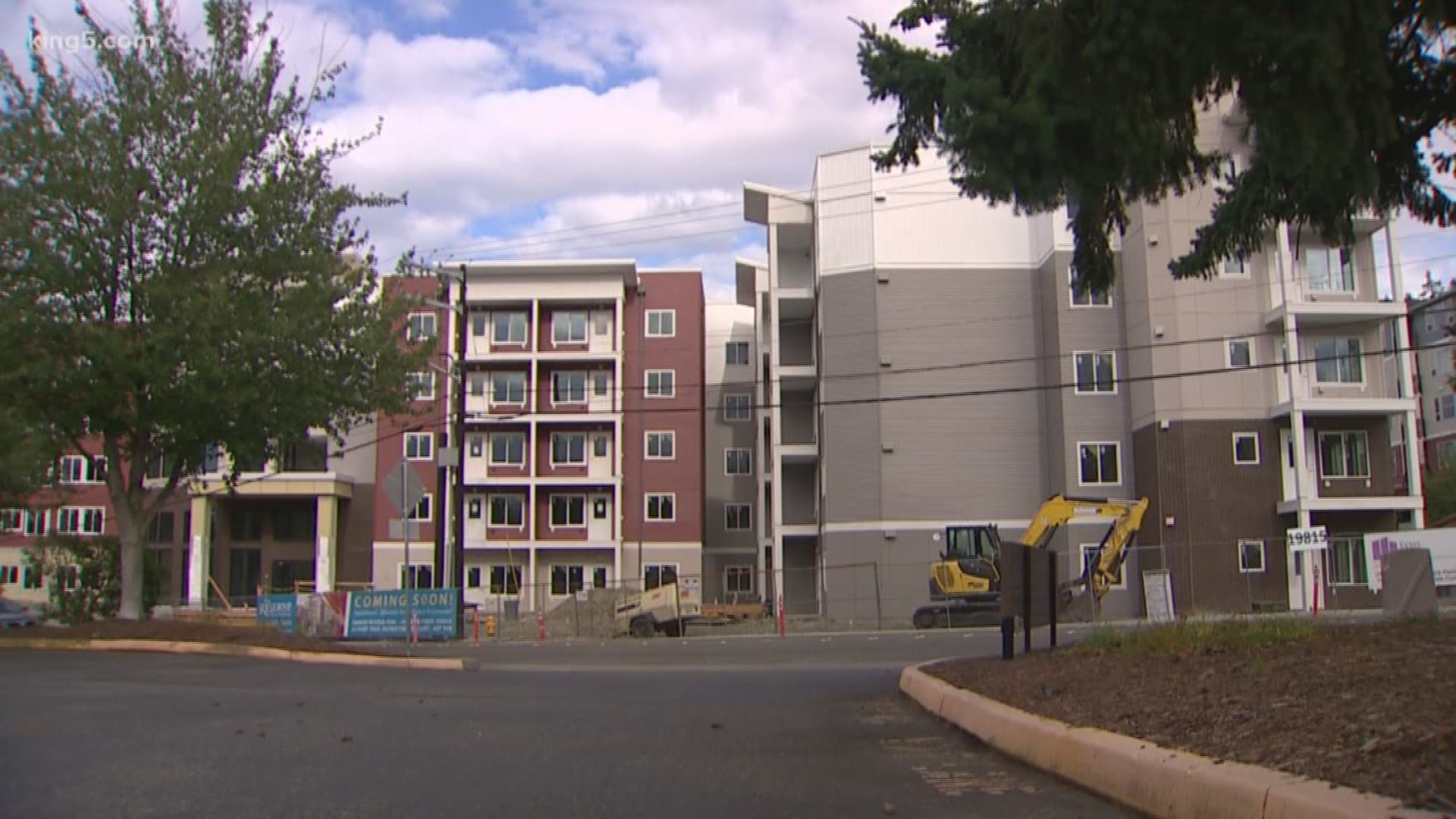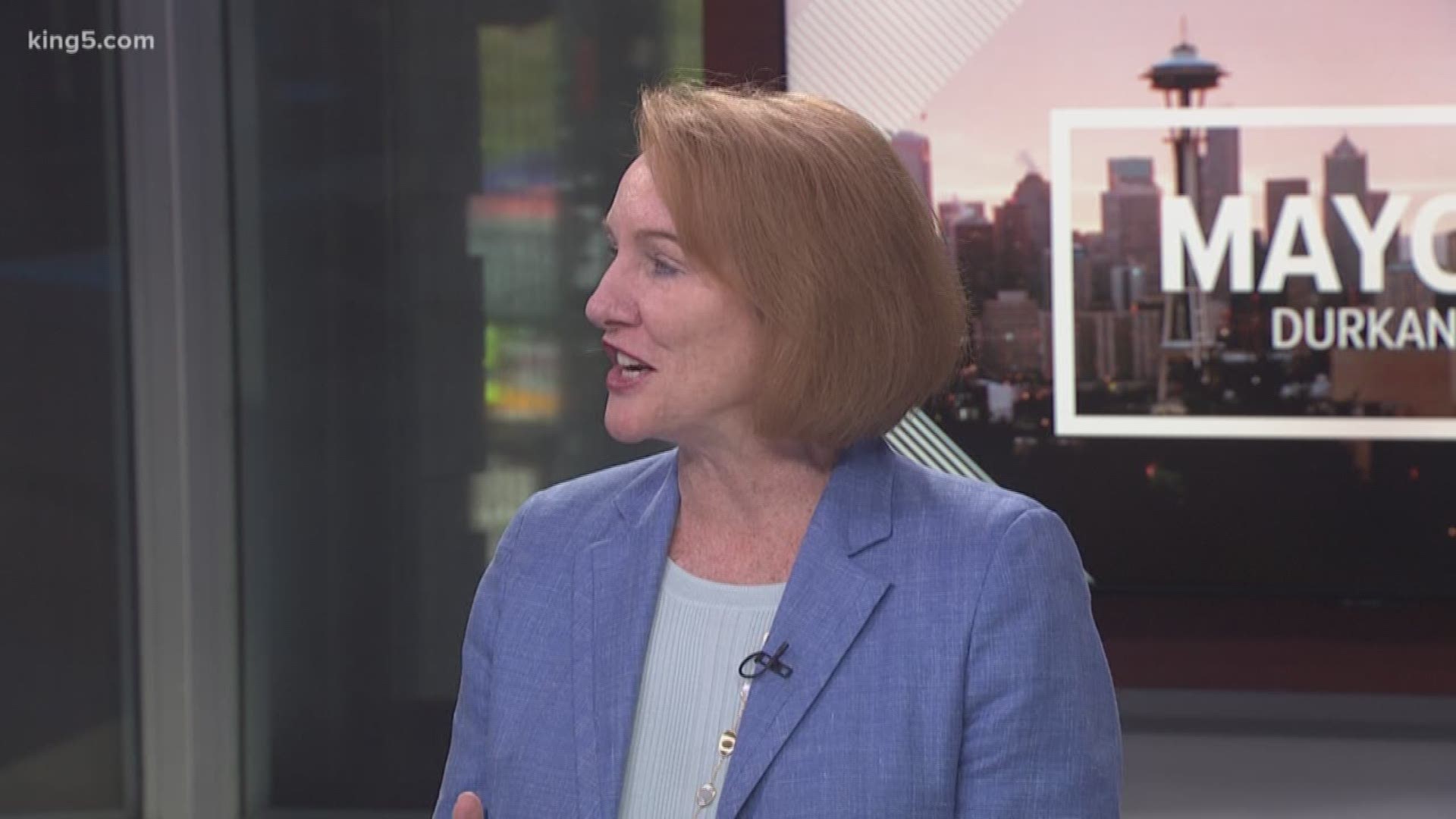Editor’s note: The video above is about Washington state’s new tenant protection laws that went into effect in July 2019.
SEATTLE - Seattle Mayor Jenny Durkan signed legislation strengthening tenant protections into law on Friday.
The legislation aims to improve communication and understanding between landlords and tenants.
“Over the past decade, Seattle was the fastest growing city in the country and our housing supply has not kept up with demand. All this growth has put some significant pressures on our city, like skyrocketing rents and homes that are out of reach for too many,” said Durkan. “As rent and housing costs increase, we must seize every opportunity to take commonsense steps like clarifying rules for landlords and tenants and reducing burdens on renters so residents can remain in their homes.”
The updates to the laws include:
- Minimum response time to a notice to pay or vacate will increase from three-days to 14 days.
- Requiring at least 60 days’ notice for all rent increases.
- Limiting the potential for eviction for non-payment of fees unrelated to the rental costs of a unit by matching the definition of “rent” to new state law.
- Creating consistency with relocation assistance available to tenants who are forced to move as a result of emergency orders or code violations.
- Expanding the eligibility for low-income tenants to receive emergency relocation assistance upfront.
- Improving transactions and notices between landlords and tenants related to non-electronic payments of rent, reasonable notice for planned utility shut-offs, and the distribution of information about the availability of assistance.
Almost half of Seattle residents live in rental housing. From 2012 to 2017, the average cost of rent increased by 37 percent, reaching $1,750.
Additional steps to help keep Seattle residents in their homes include:
- The knowledge of landlord and tenant rights will be improved, and disputes will hopefully be prevented before they happen.
- It will be unlawful for a landlord to issue a notice to terminate tenancy, increase housing costs, or enter a home unless that notice references how to access the City’s Renting in Seattle program that offers information and resources on the rights and obligations of tenants and landlords.
- Requiring landlords register with SDCI as part of the Rental Registration and Inspection Ordinance before delivering a notice to terminate a tenancy to increase compliance of rental unit standards.
- Requiring receipts for cash payments on rent and upon request for other forms of payment.
- Requiring landlords to allow payment of housing costs by check or other non-electronic means to reduce burden and cost that electronic banking requirements can place on tenants.
The legislation to strengthen tenant protections is one of several measures to address the housing needs of low- and middle-income families as a part of Durkan’s “Housing Seattle Now” initiative.
Throughout the 2019 Washington State Legislative Session, Durkan lobbied for increased funding for affordable housing and additional renter’s protections.
Other changes in state law include:
- Notices to pay or vacate include information on accessing legal or advocacy resources and available and translated in the top ten languages spoken in Washington state.
- Allowing the court to reinstate tenancy if the tenant can commit to a payment plan of outstanding fees and rent.
- Expanding the Landlord Mitigation Program to reimburse landlords for payment of outstanding fees and rent if the court reinstates tenancy.


